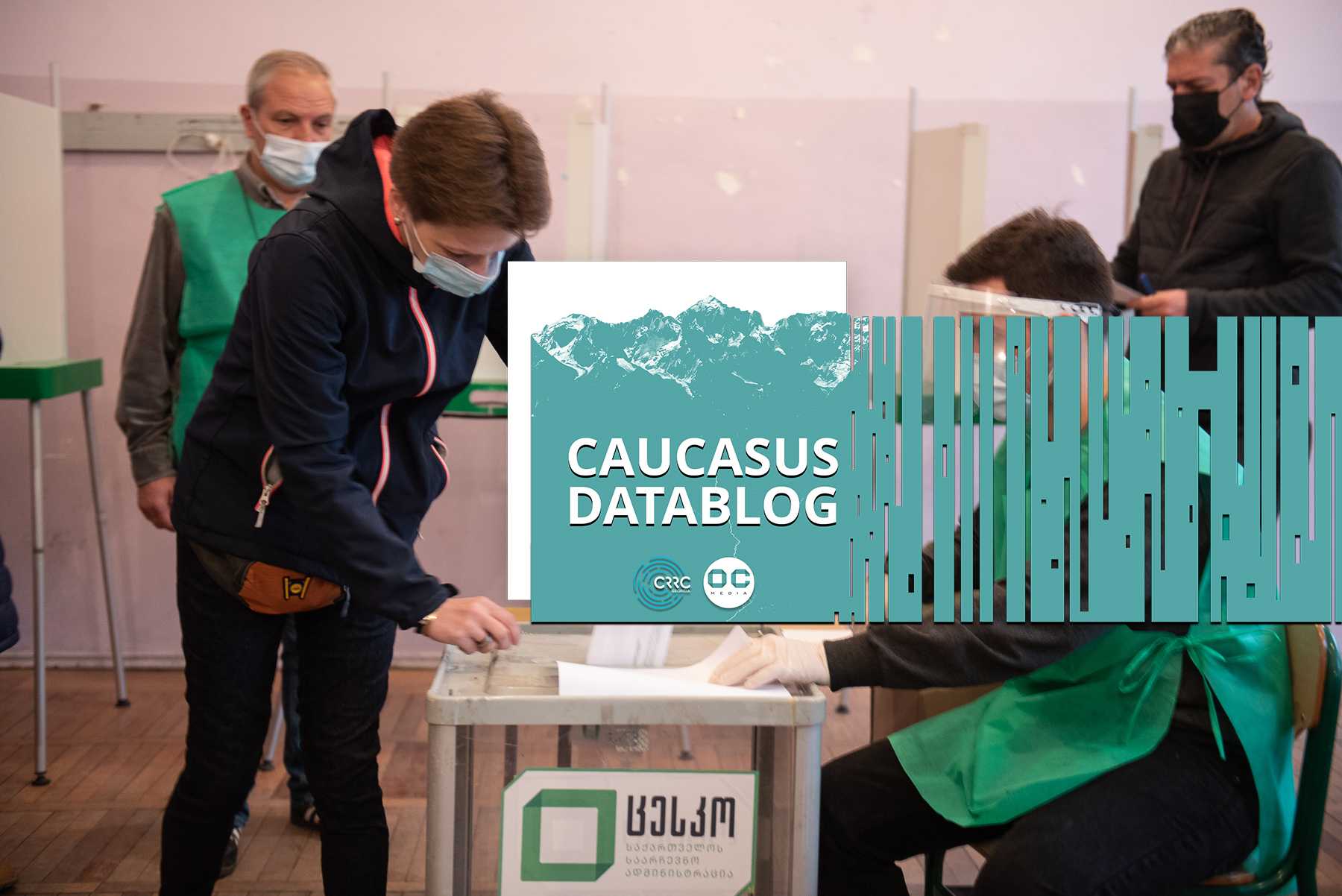
The holding of free and fair elections is central to democracy, yet, if elections are not considered free and fair, then polarisation and questions about their legitimacy can divide society. Polling from CRRC Georgia suggests a deep partisan divide in Georgia when it comes to views on the quality of elections in the country.
Data CRRC Georgia collected before the 2021 municipal elections for ISFED and after the elections for NDI shows that supporters of the ruling party and opposition were and are divided over the quality of elections in Georgia.
Views prior to the elections
Prior to the elections, roughly half the public (46%) thought that the Central Election Commission (CEC) counted votes correctly. A regression analysis suggests that people who support the Georgian Dream were 66 percentage points more likely than opposition supporters to report thinking so, controlling for other factors.
People who report that no party is closest to them, don’t know, or refuse to answer, had a 52% chance of saying that the CEC was counting votes correctly, which is more than the opposition, but far less than the corresponding share among Georgian Dream supporters.
Aside from partisanship, where one works is also associated with trust in the CEC. People who work in public service were 17 points more likely to positively evaluate the vote count than people not working and people working in the private sector.
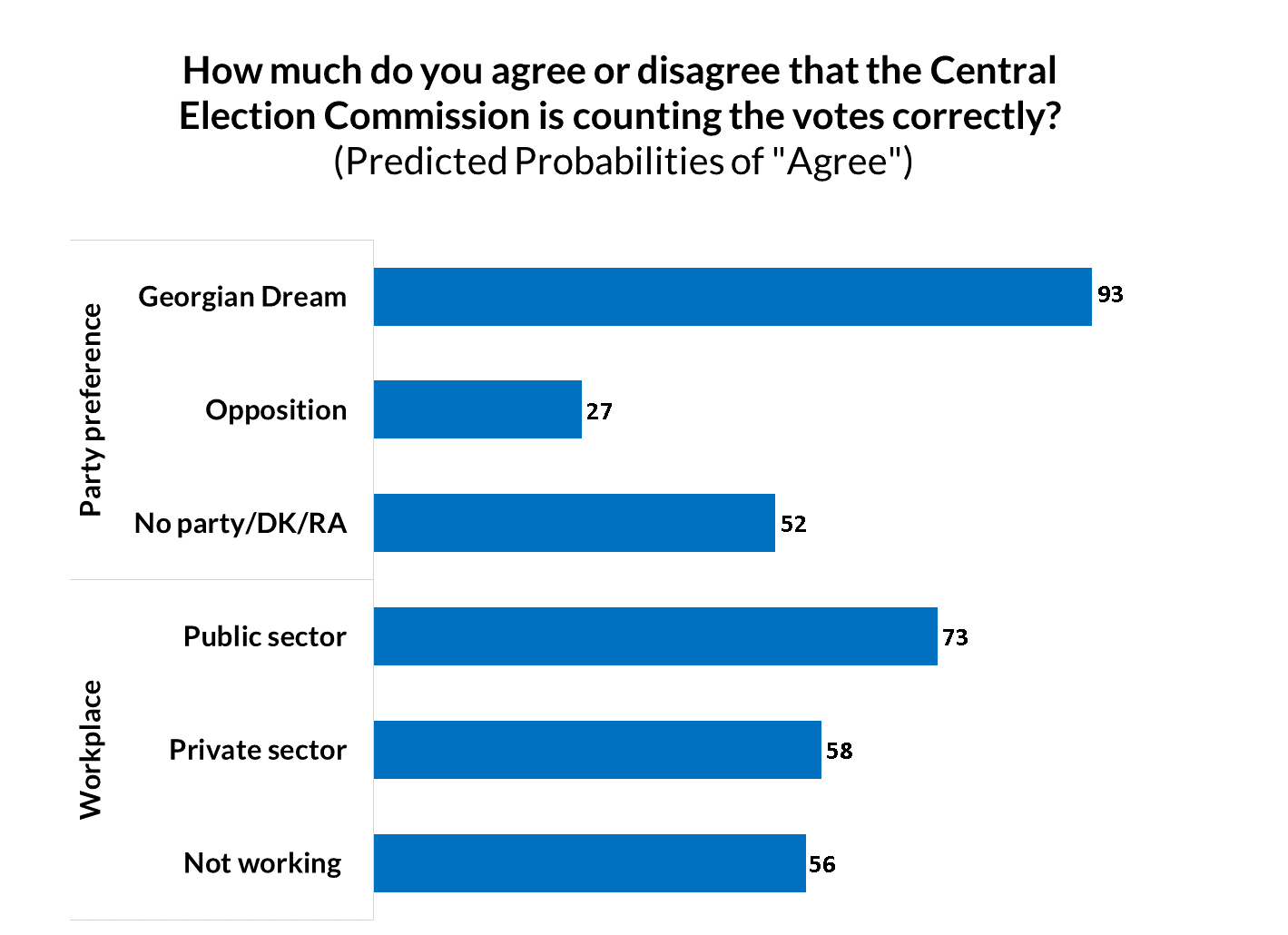
Another indicator of the quality of elections is faith in the secrecy of the ballot.
Prior to the elections, 44% of the public said that the secrecy of the ballot could be violated in Georgia, again with a strong partisan divide in terms of views. A regression model suggests that perceptions about voting privacy are also associated with party preference.
Opposition supporters were 36 percentage points more likely to report that it was possible for someone in Georgia to know who another person voted for than Georgian Dream supporters.
People who did not report a party preference held views in between.
Aside from party support, young people were less likely to think voting secrecy was protected in Georgia.

Respondents were also asked how the 2021 local government elections would be conducted. Almost 60% of respondents mentioned that the election would be conducted with either major or minor violations. While 23% said there would not be violations.
A regression model indicates that opposition supporters were more pessimistic about the quality of elections than supporters of Georgian Dream. Controlling for other factors, opposition supporters had a 44% chance of saying that the elections would be conducted with major violations, 37 percentage points more than Georgian Dream supporters.
Aside from partisanship, private sector workers and those who do not work were more pessimistic about election quality prior to the vote. More specifically, people who worked in the private sector and those who dido not work had a 21% chance of saying that the elections would be conducted with major violations, while 12% of public service workers reported the same.
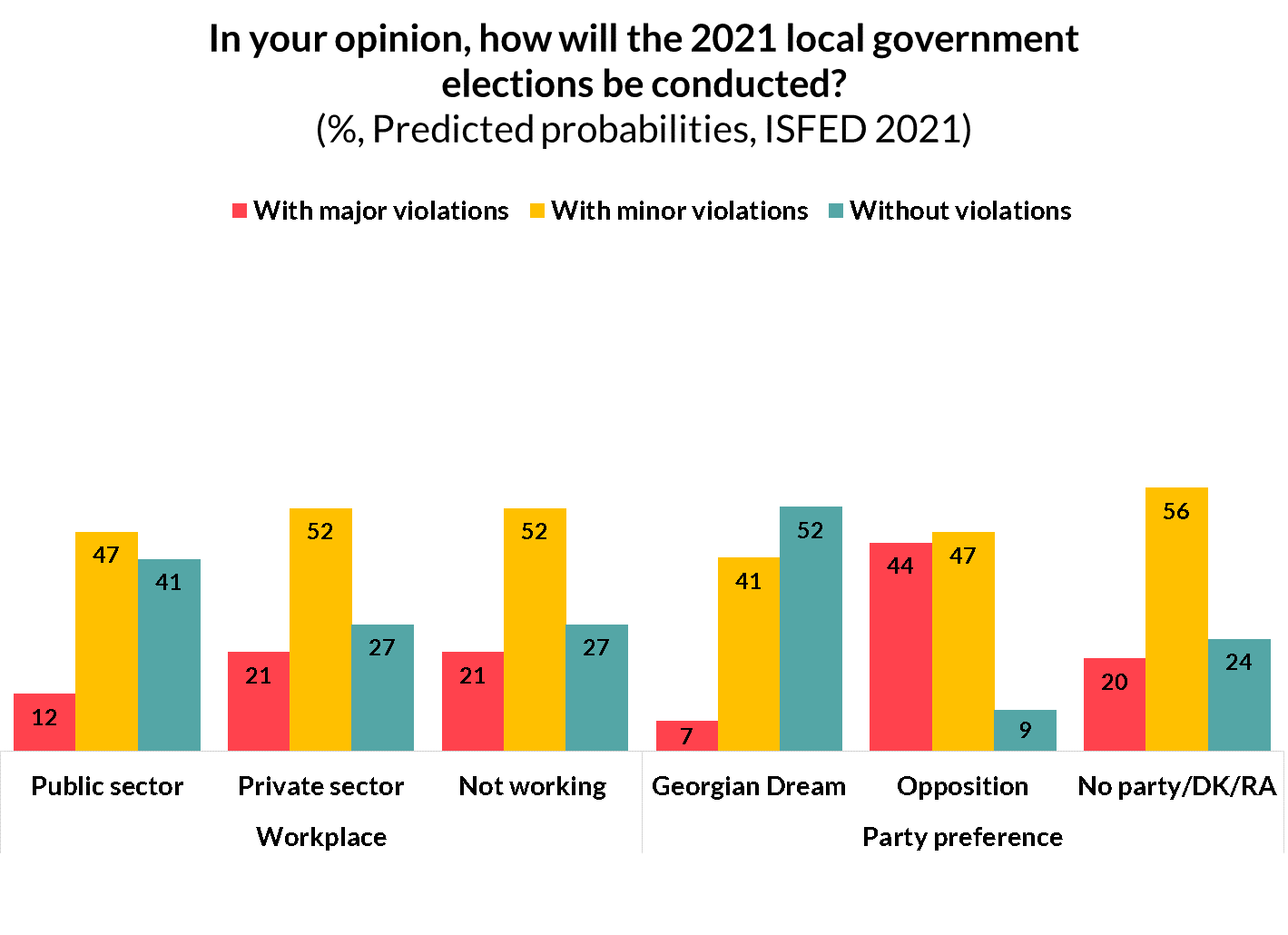
Views following the elections
Data from NDI and CRRC Georgia’s regular polling efforts suggested that pessimism about the CEC’s performance has grown over time. In December 2021, seven times as many people (35%) assessed the CEC’s performance as poor compared with in April 2014 (5%).
While positive assessments have fluctuated slightly over the years, neutral performance assessments have roughly halved.
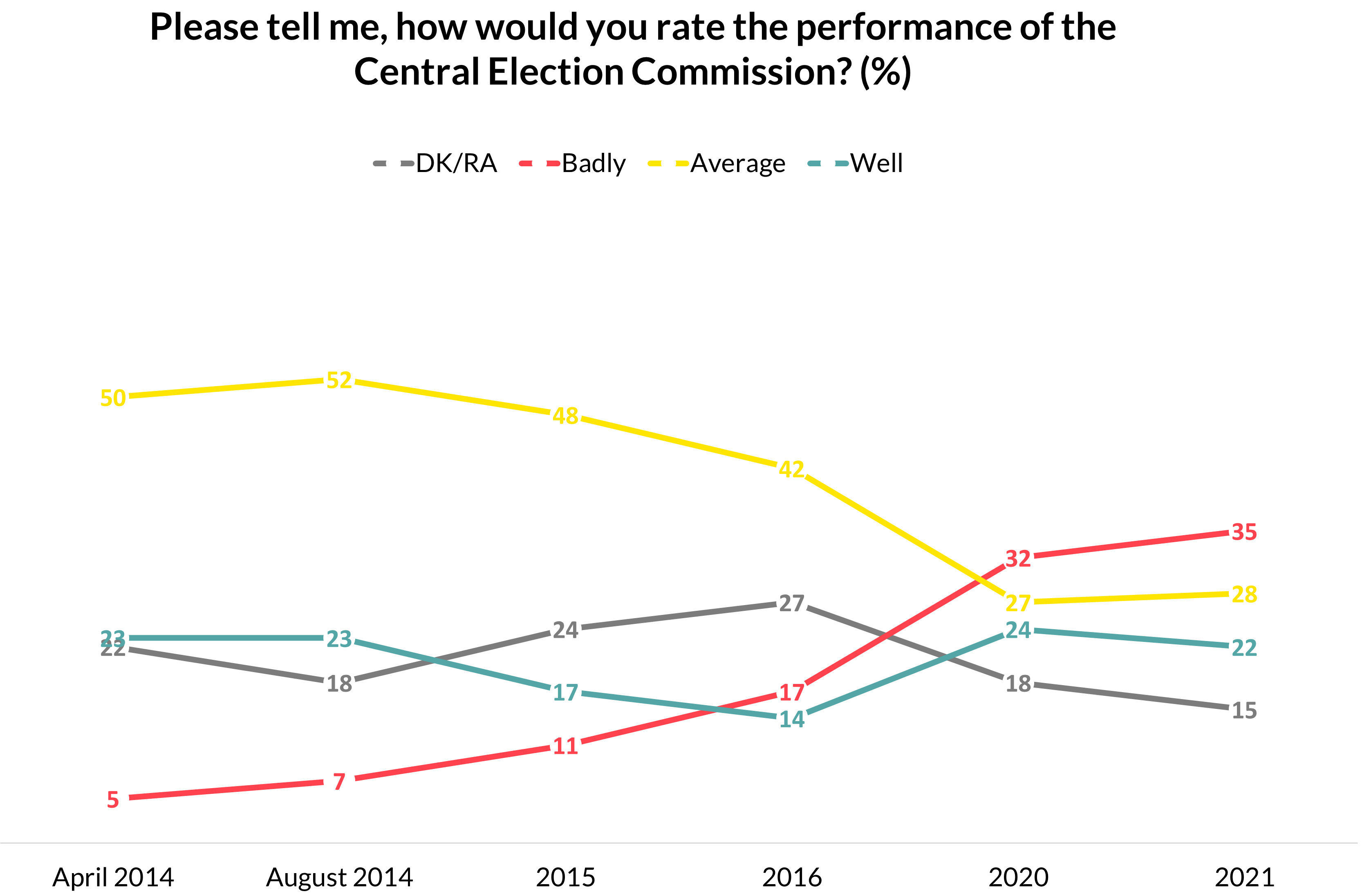
A regression analysis suggests that a number of factors were associated with CEC performance assessments following the elections, including settlement type, ethnicity, partisanship, and wealth.
A regression analysis shows that the largest difference in people’s views stems from their political preferences. Georgian Dream supporters were almost 8 times more likely than opposition supporters to rate the CEC’s performance positively and around 3.7 times more likely to do so compared to those who do not report a party preference.
Correspondingly, those who are not Georgian Dream supporters were significantly more likely to assess the CEC’s performance as poor.
Aside from partisanship, a number of factors predicted people’s views. People in Tbilisi and other cities were slightly more likely to assess the CEC’s performance poorbadly than people in rural areas.
Ethnic Georgians were more likely to have negative attitudes towards the CEC’s performance than ethnic minorities. The wealthier a household is, the less likely it was to evaluate the CEC’s work badly.
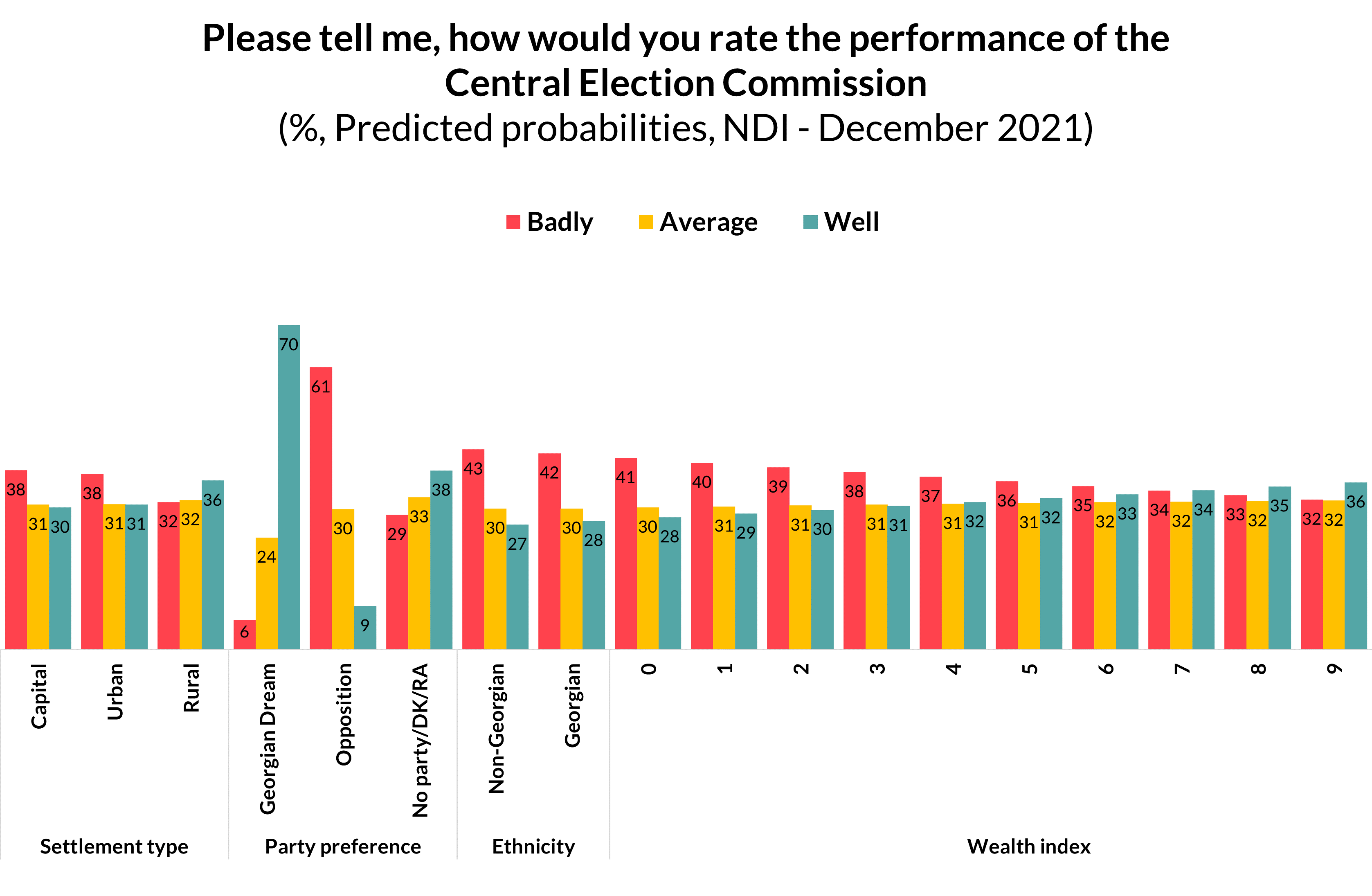
The above analysis shows that regardless of the objective quality of elections in Georgia, there is a clear problem with regards to elections being viewed as legitimate across the political spectrum.
The views expressed in this article are the authors’ alone and do not represent the views of ISFED, NDI, CRRC Georgia or any related entity.
The data used in this article is available here. Replication code for the above analysis is available here




